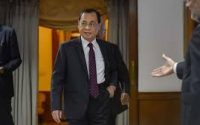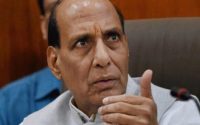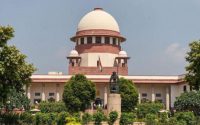$100 Website Offer
Get your personal website + domain for just $100.
Limited Time Offer!
Claim Your Website NowRead how leftist historians had accepted they argued against Ram Mandir in Allahabad High Court without any knowledge of the subject.
Source – opindia.com
The long-awaited judgment in the Ayodhya dispute was finally delivered on Saturday, the 9th of November, 2019. The Supreme Court verdict paved the way for a Bhavya Ram Mandir at Ram Janmabhoomi. Following the verdict, liberals had a meltdown on social media, as expected.
There was good reason for this meltdown on social media. For long, they had been led to believe by Leftist historians that there was minimal evidence for a Temple at the sacred site. The Wire, too, garbled propaganda ahead of the verdict. However, the Supreme Court authenticated the findings of the ASI report in its judgment. It is a good time, perhaps, to revisit some of the propaganda that was peddled by Leftist historians in the Court against the Ram Mandir.
Twitter user @PeeliHaldi made a thread on Twitter that recorded some of the ridiculous testimonies offered by the Leftist historians before the Court as recorded in the Allahabad High Court judgment on the matter, as delivered on the 9th of September, 2010. She relied on the work of Historian Dr. Meenakshi Jain who painstakingly went through the 5000 word verdict.
Suvira Jaiswal, a professor at JNU, was honest enough to admit that she knew nothing Babri Masjid at all. She didn’t know when it came into existence and admitted that whatever knowledge she had on the issue came from media reports and the ‘Historians Report to the Nation’, which was thoroughly dismissed by the Supreme Court during court proceedings. Most hilariously, however, she was forced to concede that the statements she made under oath was given “without any probe and not on basis of my knowledge, rather I am giving statement on the basis of my opinion.”
Another historian said in Court that he wasn’t aware what the Jaziya was. S.C. Mishra said, “at present, I fail to recollect when and for what purpose it was levied. I do not remember that the Jaziya was levied only on Hindus.” He also said that he had read many books about the construction of Babri Masjid but “I do not remember the name of any book right now.”
Yet another person with a PhD degree, Sushil Srivastava of Allahabad University, concluded that there was no evidence to suggest that the Mosque was built after demolishing a Temple even though he could not read or write Persian, could not read Arabic and had no sound knowledge of Sanskrit either. In his efforts, he was ‘helped’ by his father-in-law S.R. Farooqui.
If all of this was not bizarre enough, here is what he said next: “I have no knowledge of Epigraphy. I have no knowledge of Numismatic. I did not acquire any specialization in archaeology. I did not acquire any knowledge about survey of land…”
Suraj Bhan, a retired professor at Kurukshetra University, also said pretty much the same thing as Srivastava. Hilariously, he apparently believes the Ramayana was originally written by Tulsi Das. R.C. Thakran from Delhi University, as a historian, considered “newspapers and magazines to be a source of knowledge” and confessed that he had “not read a book by any historian in this regard.” Thakran described himself as a ‘table archaeologist’ rather than a ‘field archaeologist’.
D. Mandal, a retired professor of Allahabad University, said, “I never visited Ayodhya. I do not have any specific knowledge of history of Babur’s design.” He also admitted that he did not know the meaning of ‘yagya’ or ‘vedi’. However, the most bizarre statement, perhaps, came from Supriya Varma of Hyderabad University with a PhD from JNU.
She said with great confidence, “It is wrong to say that use of ‘Yaksh’ or ‘Yakshi’ is only limited to Hindu Dharmashastra. In fact, it is also associated with Buddhist religion.” Then, she went on to assert with equal certainty, “I cannot say whether the word ‘Yaksh’ or ‘Yakshi’ is referred or mentioned in any religious book of Buddhism.”
These are the historians that liberals have relied on to form their ‘informed’ opinion on the matter of Ram Mandir. The statements they made in Court beggars belief and would make people lose faith in the education system of our country. It is almost difficult to believe that such statements were made under oath by people with a sane mind.
Even more horrifyingly, these people educated generations of students who, in turn, educated hundreds of others. It paints a terrifying picture of the state of our education and, indeed, perfectly demonstrates why the current government ought to revamp the history syllabus that is taught to students on a priority basis.



